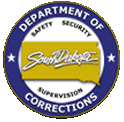Frequent Questions
Parole, Continued
Under the "new system" each inmate shall serve at least sixty days prior to parole release. An initial parole date through the application of the grid below may be applied to a life sentence only after the sentence is commuted to a term of years. A class A or B felony commuted to a number of years shall be applied to the Class 1 violent column of the grid.
| Felony Class | First | Second | Third |
|---|---|---|---|
| Nonviolent | |||
| Class 6 | .25 | .30 | .40 |
| Class 5 | .25 | .35 | .40 |
| Class 4 | .25 | .35 | .40 |
| Class 3 | .30 | .40 | .50 |
| Class 2 | .30 | .40 | .50 |
| Class 1 | .35 | .40 | .50 |
| Class C | .35 | .40 | .50 |
| Violent | |||
| Class 6 | .35 | .45 | .55 |
| Class 5 | .40 | .50 | .60 |
| Class 4 | .40 | .50 | .65 |
| Class 3 | .50 | .60 | .70 |
| Class 2 | .50 | .65 | .75 |
| Class 1 | .50 | .65 | .75 |
| Class C | .50 | .65 | .75 |
| Class B | 1.0 | 1.0 | 1.0 |
| Class A | 1.0 | 1.0 | 1.0 |
Any person convicted of a felony while an inmate under the custody of the warden of the penitentiary and for which the sentence is made to run consecutively is not eligible for consideration for parole until serving the last of all such consecutive sentences. In such cases the parole date shall be established subject to the provisions of SDCL 24-15A-32.
A new law was passed during the 2023 legislative session that impacts parole eligibility for those convicted of and sentenced to prison for a crime committed on or after July 1, 2023. For information on that law, click here.
When and where are parole hearings held?
The Board of Pardons and Paroles schedules and holds hearings every month. Individual members may be selected to act as a hearing officer and provide recommendations to the Board. Panels of two or more members may also act as a hearing board and they have full authority in decisions of parole. Hearings may also be conducted via teleconference.
Who can attend a parole hearing?
Parole hearings are public. Anyone can attend. Victims can attend hearings and testify in person or in writing. Those people are asked to contact the Parole office so staff can schedule adequate time for public testimony.
If an inmate is granted parole, does the state give them money for clothes and transportation?
Yes. SDCL 24-15-12 requires that when the Board of Pardons and Paroles grants a parole to an inmate, the Department of Corrections shall provide the parolee, if he is not already provided for, with necessary clothing not exceeding a cost of one hundred dollars, with necessary traveling expenses not exceeding fifty dollars, and with transportation to the county of commitment or an equivalent distance.
Are crime victims notified of when someone in prison is paroled?
SAVIN, the Statewide Automated Victim Information and Notification system, is a free, automated service that provides crime victims with vital information and notification 24 hours a day, 365 days a year. See the Attorney General's website to register.
Do parolees pay for their supervision?
Yes. SDCL 24-15-11 allows the department to adopt administrative rules for the implementation of a restitution plan and payment of supervision fees. Parolees under regular supervision are required to pay $20 per month. Those parolees on intensive supervision are required to pay $25 per month. These charges can be waived in cases of serious medical problems and treatment, unemployment or other conditions which warrant a waiver. The money from the supervision fees goes into the state's general fund.
In certain cases, a parolee may perform approved community service work in lieu of payment.
What are the conditions of parole?
Conditions of parole may differ for each inmate, but provisions such as obeying all laws, maintaining contact with the assigned parole agent, submitting to search and seizure at any time, and working diligently at a lawful occupation are standard. Parolees are also prevented from using or possessing any mood altering drugs and weapons. Any violation of these conditions can land the parolee back in prison to serve the remainder of their sentence.
Can conditions of parole be modified while someone is on parole?
Yes. Although the Department of Corrections uses a standard community supervision agreement and special conditions may be applied to an offender, the agreement may be modified. If a parolee wishes to have the terms, conditions, or restrictions modified, they need to first discuss them with their parole agent. A parolee may appeal the terms, conditions and restrictions to the parole agent’s supervisor, then to the executive director and ultimately to the parole board.
Are parolees subject to testing for alcohol and drugs?
Yes. Parole agents can conduct a breathalyzer or drug test on a parolee at any time. Parolees must also submit their person, property, place of residence, vehicle and personal effects at any time, with or without a search warrant, whenever reasonable cause is ascertained by a parole agent.
What happens if someone violates their parole?
Parole agents can arrest the parolee. The parolee is brought back in front of the parole board for a hearing to determine whether parole should be revoked. If the Board of Pardons and Paroles is satisfied that any provision of parole has been violated, it may revoke the parole and reinstate the terms of the original sentence and conviction or it may modify conditions of parole and restore parole status. In addition, the board is authorized to order the reduction of time in full or in part for good conduct granted under SDCL 24-5-1. For old system inmates, if the board does not find that the provisions of parole have been violated, it may restore the parolee to the original or modified terms and conditions of his parole. An old system inmate will have another parole hearing eight (8) months from their violation. A new system inmate will be seen at a date set by the parole board (from 1-24 months from the violation).
Can an inmate be paroled to another state?
Yes. SDCL 24-15-15, 24-15A-26 and Chapter 24-16 allows for parolees to go to another state to be supervised. The parolee will be required to adhere to the South Dakota Community Supervision Agreement’s terms, conditions and restrictions as well as the receiving state’s supervision standards. Parolees accepted under Interstate Compact Agreement are required to pay supervision fees in the receiving state.

